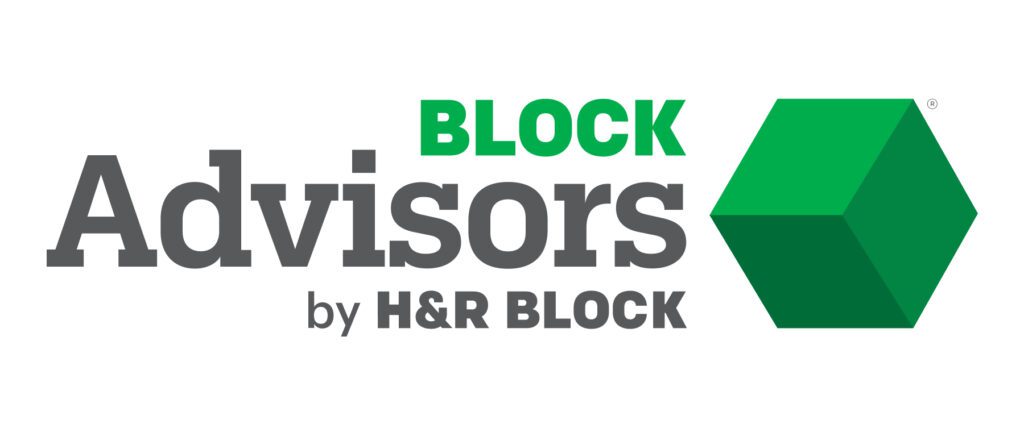13 Common Self-Employed Tax Deductions
8 min read
May 15, 2025 • Block Advisors
Let’s face it — tax season can be stressful. This is especially true for self-employed individuals and small business owners searching out every self-employed tax deduction and navigating other small business tax concerns.

But there is a silver lining… business taxpayers are often entitled to extra self-employed and small business tax deductions. Some allowable expenses may surprise you. These tax breaks and business expense deductions can potentially lead to substantial savings this tax year.
We’re here to help with a self-employed tax deduction cheat sheet that covers the most common tax deductions you may not know you can claim.
And if you already know you don’t want to tackle finding all the self-employed tax deductions you qualify for alone, the Block Advisors team is here to help you with your small business taxes.
13 tax deductions for self-employed taxpayers
1 – Retirement savings
Who said you had to be employed by a third party to take advantage of retirement savings plans? Retirement savings plans — like a solo 401(k) or SEP IRA — have a sizable benefit for a self-employed individual. When you tuck money away for retirement, you also do yourself a favor by reducing your taxable income.
Here’s a breakdown of the tax benefits of each type of retirement plan contribution option:
- Solo 401(k): A solo 401(k) has the same tax benefit as a traditional 401(k), which is this: Contributions are not taxed in the year they are contributed, and the account balance grows on a tax-deferred basis. But, like a 401(k), you are taxed when you withdraw funds from the account. Alternatively, some 401(k) plan documents have a designated Roth option, allowing you to save after-tax dollars. However, this must be designated by the sole proprietor in the plan. Contributions to a Roth IRA aren’t deductible. Additionally, distributions from the Roth account won’t be taxed when you withdraw your funds later down the line — when your tax bracket could be higher.
- Simplified Employee Pension (SEP) IRA: SEP IRAs have tax-deferred growth potential until withdrawal and no mandatory contributions or annual tax filings. Contributions must follow the allocation formula adopted in the SEP plan document (likely Form 5305-SEP). As of 2023, employees can elect Roth treatment for these contributions.
Remember that your retirement savings contributions are deductible as an adjustment to income and thus reduce your adjusted gross income (AGI). Contributions for your employees are deductible as business expenses.
2 – Home office deduction
Home office write-offs are complex but beneficial. They are another deduction to reduce your total taxable income. Due to confusion, many small business owners are leery of the home office deduction. But a home office deduction can be valuable. Get help navigating IRS Form 8829 to claim the home office tax deduction.
While there are rules to operating a home business, if you qualify, you can calculate home office deductions in two ways. Your choices include the regular deduction method or the safe harbor method. The regular method involves tallying overall home expenses and allocating a portion to your office as a business expense. The safe harbor method is a more straightforward approach using a formula. Under this method, you multiply the allowable square footage of your office by a rate of $5. However, the maximum safe harbor tax deduction is $1,500.
Regardless of the method you use to deduct home office expenses, the space must meet strict regular and exclusive use tests to be eligible for this tax deduction.
3 – Car expenses
If you drive your car for business use, you can deduct the car expenses related to the business use of the vehicle on your tax return. You can deduct actual expenses incurred while driving or use the standard IRS mileage rate.
To easily track your car mileage, consider an app-based mileage tracker. You can stay compliant with the Internal Revenue Service and say goodbye to pen-and-paper tracking.
Remember that commuting expenses, such as driving between your home and office, are not deductible.
Another expense deduction that entrepreneurs often use for vehicle expenses is a Section 179 deduction.
4 – Travel expenses
Business travel expenses offer additional opportunities for tax savings using deductions. When a trip is primarily for business purposes — or helpful and appropriate for the success of your business — you can deduct at least a portion of the trip’s cost. Allowable expenses can include meals, airfare, hotels, and conference fees. Even dry cleaning may be an allowable expense as long as it is necessary for your business trip. But don’t get too crazy – you may not deduct travel expenses considered lavish or extravagant.
5 – Healthcare expenses
While self-employed tax responsibilities can be complex, an often overlooked tax benefit is health insurance premium deductions. There are two guidelines to note when it comes to deducting the cost of health insurance coverage:
- If you are a small business owner, you may be able to claim a self-employed healthcare deduction for medical, dental, and qualified long-term care insurance for yourself, your spouse, and your dependents.
- You may also qualify for a tax credit for up to 50% of the health insurance premiums for SHOP Marketplace coverage. Credits are often considered even better than deductions for reducing your tax burden.
For self-employed individuals filing a Schedule C, C-EZ, or F, a policy can be either in the name of the business or in the name of the individual.
Small business taxes made easy
Get expert assistance in-office or virtually for your small business taxes
6 – Taxes
Believe it or not, your small business taxes can be used as a self-employed business tax deduction! You may deduct certain federal, state, local, and foreign taxes directly related to your business as an expense.
7 – Employee and contract worker wages
Your business income is not generally a deductible business expense, but payroll for your employees (W-2 employees) or contract labor (1099-NEC contractors) is.
If you know you will be paying a contractor at least $600, send them a 1099-NEC form and track payments made to them
8 – Rent on business property
The cost of renting a business office space — like a storefront or office — is a business use and a deductible business expense.
9 – Advertising costs
A big part of growing a small business is marketing it. Thankfully, ordinary advertising costs are deductible. Business cards, online advertising costs, billboards, mailers, signs, giveaway items (subject to certain limits), your business website, postcards, magazine advertisements, and marketing agency fees are some examples of acceptable business purpose deductions.
10 – Professional fees
As a small business owner, it’s common that you’ll need professional legal, tax, and even business coaching services. These are all considered tax-deductible expenses for small businesses.
11 – Professional supplies
Generally, according to the IRS, the cost of materials and supplies used during a trade or business may be deducted as a business expense in the tax year they are used. Items often acceptable for a self-employment tax deduction include cleaning supplies, paper, and supplies used to produce or ship products. This is another crucial area in which to show documentation to the IRS. If you are audited, easy access to records will help back up your expenses. Make sure to document everything and keep the documentation with your income tax records.
12 – Insurance coverage
Many small business owners hedge risk by having business insurance. Think umbrella policies, business liability insurance, malpractice coverage, and other insurance policies related to your trade, business, or profession. These types of insurance are generally deductible.
However, there is a notable exception. Life insurance for the business owner is NOT a deductible expense.
13 – Startup cost deductions
Starting a business can mean a lot of expenses before you see any revenue come in from selling your goods or services. Thankfully, many of these costs are tax deductible. The IRS allows businesses to deduct up to $5,000 of business startup costs. You may also deduct up to $5,000 of organizational costs. There are some guidelines and exceptions, so it is crucial to understand what can and can’t be deducted as a business expense. A Block Advisors tax pro can walk you through the process if you need assistance.
Self-employed tax expertise to fit your business
Small business certified tax pros are here to help
Tax tip for deducting self-employed expenses
Not all self-employed expenses qualify as a tax deduction (for example, entertainment expenses). There are some specific IRS rules you need to follow when it comes to tax-deductible expenses. Specifically, they must be ordinary and necessary:
- An ordinary expense category is common and accepted in your trade or business.
- A necessary expense category is helpful and appropriate for your trade or business. An allowable expense does not have to be indispensable to be considered necessary.
So, determine what deductions you qualify for and take advantage of them on your upcoming income tax return. Here’s our small business tax prep checklist to help you get organized. Remember: You are not alone in this!
Get help with self-employed expense deductions
As a small business owner, we know you likely didn’t start your business to spend your valuable time at your desk navigating bookkeeping and tax preparation.
Luckily, help is at your fingertips! Whether you’re looking for self-employed tax deductions, help with filing Form 4562, bookkeeping, payroll, or general small business tax help, we have a tax professional here for you.
Rely on our team of small business certified tax pros to keep your business on track so you can get back to what you love. Find a Block Advisors tax pro near you today!
This article is for informational purposes only. The content may not constitute the most up-to-date information and should not be construed as legal advice.




